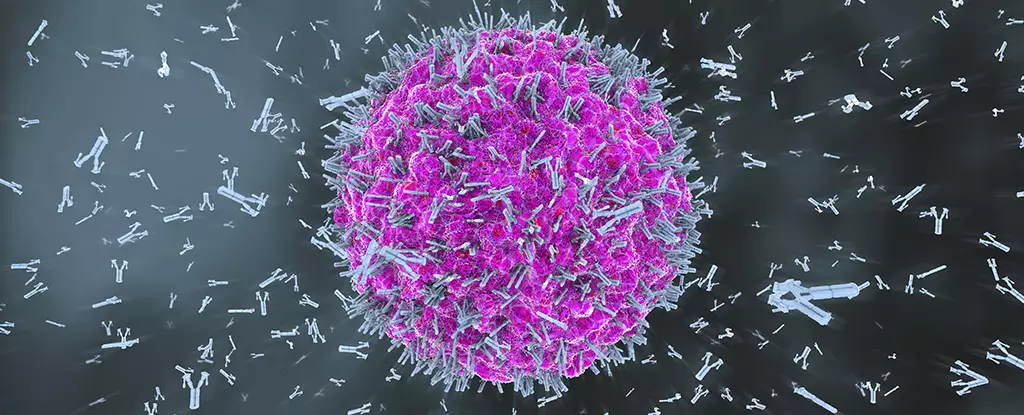Our immune system is a complex and highly efficient defense mechanism that protects our body from harmful pathogens. It is capable of distinguishing between our own cells and foreign invaders, launching a powerful response when needed. However, when the immune system malfunctions, it can lead to severe consequences, such as autoimmune disorders. Scientists are constantly striving to unravel the mysteries of the immune system to better understand how it functions and how it can be regulated.
A recent study conducted by a team from the Swiss Federal Institute of Technology Lausanne revealed a groundbreaking discovery in immune response regulation. The researchers identified a key enzyme called cyclic GMP-AMP synthase (cGAS), which plays a crucial role in identifying invading viruses in the body. This protein binds to foreign DNA in the cell’s cytoplasm, triggering an immune response to combat the invader. However, the study also uncovered a biological switch that deactivates cGAS in situations where no immune response is necessary.
One of the significant findings of the study was the identification of a protein complex named CRL5–SPSB3, which adds ubiquitin to cGAS to mark it for disposal. This mechanism functions as a key switch that eliminates cGAS when it is not needed, preventing the enzyme from attacking healthy cells. By regulating the levels of cGAS in the nucleus, this protein complex effectively controls the immune response by maintaining the delicate balance between attacking pathogens and preserving healthy cells.
The study’s findings have critical implications for autoimmune disorders, such as type 1 diabetes and inflammatory bowel disease, which result from dysregulation of the immune system. Understanding the role of protein degradation in immune response regulation sheds light on potential therapeutic targets for treating these disorders. By targeting the mechanisms that control cGAS activity, researchers may be able to develop novel approaches to modulate the immune response and prevent autoimmune reactions.
As research continues to uncover the intricate dynamics of the immune system, new insights into immune response regulation are being revealed. By elucidating the mechanisms that govern cGAS activity and protein degradation, scientists can pave the way for innovative therapeutic strategies to enhance immune system function and combat autoimmune disorders. The study’s findings provide a solid foundation for further exploration into the role of protein degradation in immune response regulation and offer promising avenues for future research endeavors.
The discovery of the ‘switch’ that controls cGAS activity through protein degradation represents a significant advancement in our understanding of immune system regulation. By unraveling the complexities of immune response mechanisms, scientists are moving closer to developing targeted therapies for autoimmune disorders and other immune-related conditions. The study’s findings underscore the importance of protein degradation as a critical determinant of immune system function and highlight the potential for therapeutic interventions aimed at modulating immune responses effectively.


Leave a Reply